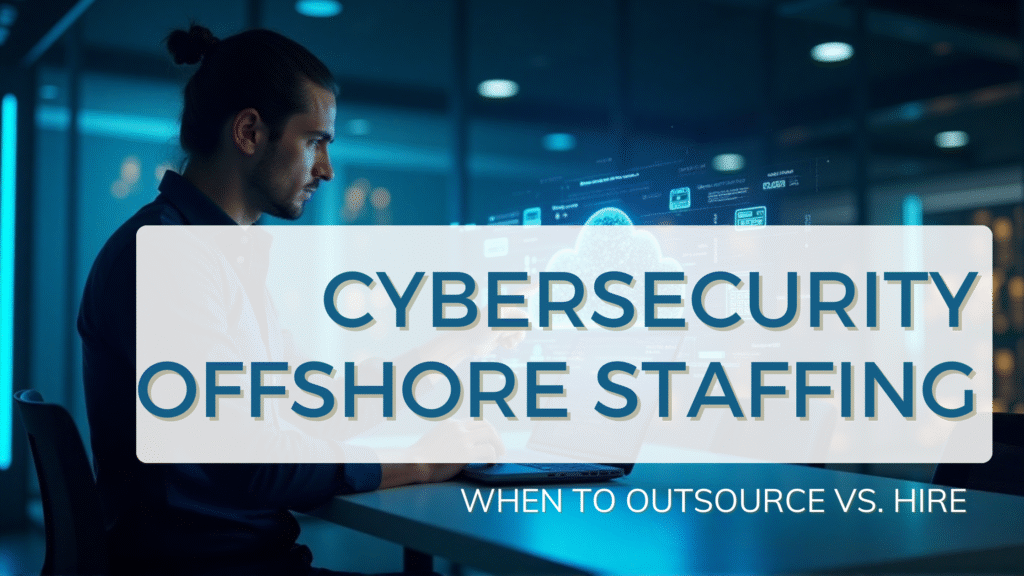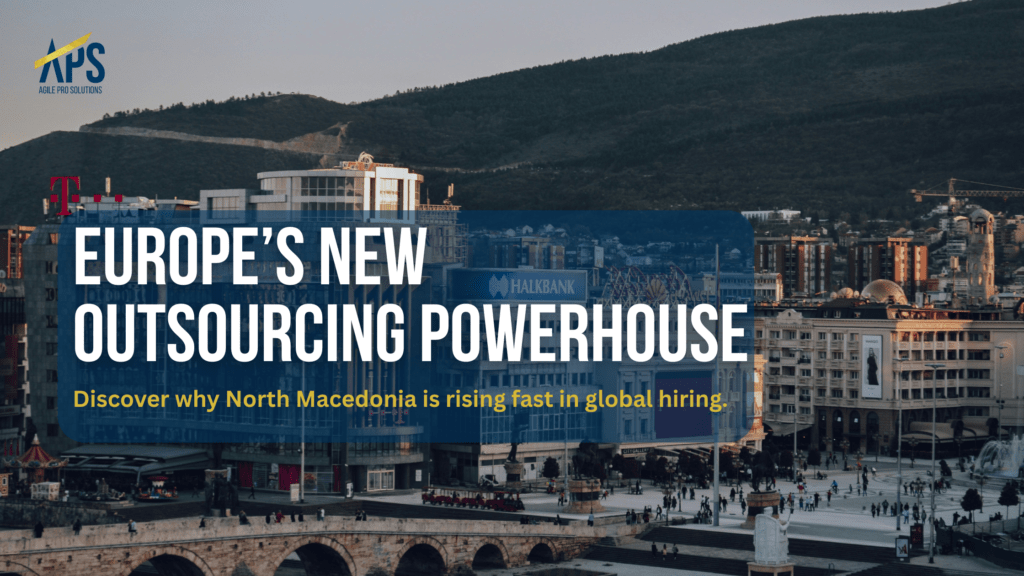Outsourcing 2026: Smarter, Greener, and Borderless – The Trends Redefining Global Business

Outsourcing is no longer just about cost—it’s about passionate collaboration, lifelong learning, and determined partnerships that drive innovation. 6 Trends Redefining Outsourcing in 2026 AI-Powered Outsourcing — AI platforms predict trends, gauge customer sentiment, and guide strategic choices, enabling faster growth with precise, personalized experiences. Hybrid Outsourcing Models — Blending global talent with local expertise for flexible structures that balance cost efficiency, cultural alignment, and resilience. Cybersecurity as a Priority — Zero-trust frameworks, encrypted transfers, and IP protection become core deliverables for borderless teams. Sustainability-Driven Outsourcing — Partners are chosen for ESG: green practices, ethical labor, carbon-neutral ops, and transparent audits/reporting. Data Visibility & Transparency — Real-time dashboards expose workflows, KPIs, and compliance metrics to build trust and speed decisions. Outcome-Based Models — Performance contracts pay for results, aligning incentives and accelerating innovation and accountability. The APS Advantage At Agile Pro Solutions (APS), we make outsourcing agile, bold, and sustainable—forming partnerships built on passion, accountability, and measurable growth. Conclusion The leaders of tomorrow stay agile, embrace change with determination, and hold themselves accountable for results and impact. Outsourcing isn’t a transaction—it’s an opportunity to innovate, collaborate, and grow in a borderless world. Which trend will have the biggest impact on your business? Let’s discuss. Book a Free Consultation
How to Outsource Finance Roles Without Risk

In today’s fast-paced business world, efficiency isn’t just a buzzword—it’s survival. Outsourcing accounting has become a strategic way to streamline operations, cut costs, and unlock innovation and agility. From Cost Center to Growth Enabler Gone are the days when accounting lived only in-house under piles of spreadsheets. Modern companies treat outsourcing as a strategic advantage—turning finance into a driver of insight, speed, and smarter decisions. Key Benefits of Outsourcing Accounting Services Access to Expertise Without the Overhead — Tap seasoned professionals and advanced tools without hiring full-time staff. Scalability and Flexibility — Handle seasonal swings and growth spurts smoothly so your finance ops thrive year-round. Focus on Core Business — Free internal teams from routine tasks to focus on strategy, innovation, and customer experience. Technology-Driven Accuracy — Benefit from modern software and AI-driven processes that reduce errors and strengthen compliance. The APS Advantage At Agile Pro Solutions (APS), we deliver more than outsourced accounting—we deliver a strategic partnership. Our approach blends passion, accountability, and innovation to provide agile, scalable services powered by accuracy, compliance, and cost efficiency. With a team of lifelong learners dedicated to your success, we help you focus on growth while we handle the numbers with precision and care. Conclusion Outsourcing accounting isn’t just about cutting costs—it’s about future-proofing your business. In a world where agility and data-driven decisions define success, outsourcing can give you a decisive edge. If outsourcing accounting could free up 60% of your time, how would you use it to grow your business? Book a Free Consultation
The Future of Finance: Why Smart Businesses Are Outsourcing Accounting

How BI is Transforming Logistics Companies | APS The Future of Finance: Why Smart Businesses Are Outsourcing Accounting In today’s fast-paced business world, efficiency isn’t just a buzzword—it’s survival. Outsourcing accounting has emerged as a strategic way to streamline operations, cut costs, and unlock innovation and agility. From Cost Center to Growth Enabler Gone are the days when accounting lived only in-house under piles of spreadsheets. Modern companies treat outsourcing as a strategic advantage—transforming accounting from a back-office expense into a driver of insight, speed, and smarter decisions. Key Benefits of Outsourcing Accounting Services Access to Expertise Without the Overhead – Tap seasoned professionals and advanced tools without hiring full-time staff. Scalability and Flexibility – Handle seasonal swings and growth spurts smoothly so your finance ops thrive year-round. Focus on Core Business – Free internal teams from routine tasks to focus on strategy, innovation, and customer experience. Technology-Driven Accuracy – Benefit from modern software and AI-driven processes that reduce errors and strengthen compliance. The APS Advantage At Agile Pro Solutions (APS), we deliver more than outsourced accounting—we deliver a strategic partnership. Our approach blends passion, accountability, and innovation to provide agile, scalable services powered by accuracy, compliance, and cost efficiency. With a team of lifelong learners dedicated to your success, we help you focus on growth while we handle the numbers with precision and care. Conclusion Outsourcing accounting isn’t just about cutting costs—it’s about future-proofing your business. In a world where agility and data-driven decisions define success, outsourcing can give you a decisive edge. If outsourcing accounting could free up 60% of your time, how would you use it to grow your business? Book a Free Consultation
Cybersecurity Staffing: When to Hire vs. Outsource?

Cybersecurity threats don’t wait for office hours. For growing businesses, the question isn’t if you’ll need cybersecurity professionals — it’s how to staff them. Should you build an internal security team or outsource to specialized experts? The answer depends on your risks, resources, and growth strategy. The Case for Hiring In-House Some companies benefit from having cybersecurity talent embedded directly within their teams. Full control over staff, tools, and protocols. Company-specific expertise grows over time. Immediate access to internal systems without external approvals. Drawbacks: high costs, talent shortages, and scalability issues. The Case for Outsourcing Cybersecurity For many organizations, outsourcing delivers stronger protection at a fraction of the cost. 24/7 monitoring from global teams who never sleep on threats. Specialized expertise across compliance, cloud, and incident response. Scalability — instantly add coverage during spikes or new projects. Cost efficiency — pay only for the coverage you need. Drawbacks: less direct control and vendor dependency. When to Hire vs. When to Outsource Hire in-house if you’re a large enterprise with complex internal systems, high regulatory oversight, and resources to build a team. Outsource if you’re a mid-sized business that needs cost-effective, round-the-clock protection without building a full security department. Hybrid approach: hire one or two internal leads, then outsource monitoring, testing, and incident response for maximum coverage. The APS Advantage in Cybersecurity Staffing At Agile Pro Solutions (APS), we don’t just place cybersecurity staff — we provide dedicated professionals integrated into your business. Supported by AI monitoring and BI dashboards, APS ensures you’re not only secure today but prepared for tomorrow’s threats. Conclusion Cybersecurity is no longer optional — it’s business-critical. Whether you hire or outsource, the key is acting before the next breach. For most companies, outsourcing delivers the best balance of protection, scalability, and cost. Ready to strengthen your cybersecurity strategy? Book a Free Consultation
What Happens When You Build the Right Team? 5x Growth in 12 Months

We’ve seen firsthand what happens when the right people meet the right systems. A growing finance services company came to us with a clear problem: they had the market demand but not the operational capacity to meet it. Their in-house team was overloaded. Hiring locally was slow and expensive. What they needed wasn’t just more people, they needed a better way to build a team that could scale fast, without sacrificing quality. The Starting Point: A Small but Stretched Team When we first partnered with them, they had just a few employees handling everything from client onboarding and document review to follow-up calls and reporting. Burnout was real. Turnover was creeping in. And their internal hiring pipeline couldn’t keep up. The Solution: UpSourcing With APS Instead of outsourcing tasks to a rotating cast of freelancers or BPOs, we helped them build a dedicated offshore team, integrated into their culture, aligned with their goals, and supported daily by our management team. We started with just a few positions, focusing on the areas causing the most operational bottlenecks: Client support Document processing Follow-up coordination Each new hire was carefully vetted and trained to match not just the job description, but the company’s culture and communication style. The Result: 5x Team Growth in Less Than 12 Months Within a year, their offshore team expanded 5x. What started with 3 team members grew into a high-performing department supporting everything from customer service to compliance review—with zero drop in quality. The company didn’t just grow; it stabilized. Turnover dropped. Customer satisfaction rose. Their internal leadership had more time to focus on strategy instead of scrambling to put out fires. Why It Worked Dedicated Support: A single point of contact from APS oversaw training, performance, and communication. Cultural Alignment: We didn’t just fill roles—we matched professionals who understood the financial space and U.S. business norms. Flexible Scale: As needs shifted, we added roles quickly, without the usual hiring delays or overhead. Final Thought Growth isn’t just about adding more people. It’s about adding the right people, in the right way, with the right structure to support them. That’s the difference UpSourcing makes. If your team is hitting a ceiling, maybe it’s time to rethink how you scale.
Hiring mistakes companies still make in 2025

Hiring Mistakes Companies Still Make in 2025 Insights from the APS HR Office Despite the evolution of hiring tools, automation, and AI-driven platforms, many companies in 2025 are still struggling with the same hiring mistakes they made years ago. At Agile Pro Solutions (APS), our HR team sees these patterns regularly — whether companies come to us after failed hires or ask us to help fix an underperforming recruitment process. Here are the most common hiring mistakes we still see — and how your company can avoid them. 1. Rushing the Process Just to Fill the Role Speed is important, but rushing leads to poor fits. Many businesses still prioritize fast hires over right hires. The result? High turnover, wasted training hours, and demotivated teams. APS HR Tip: Focus on clarity over speed. Our HR specialists first define the role with the client, including soft skills, experience, and cultural fit, not just the job title. 2. Ignoring Soft Skills Resumes show hard skills, but soft skills often make or break performance. Many companies still overlook communication, adaptability, or emotional intelligence in favor of flashy credentials. APS HR Tip: Our vetting process includes personality insights, culture-fit interviews, and situational assessments. You can’t train attitude, but you can screen for it. 3. Treating Hiring as a One-Off Task Hiring is often reactive: a team member quits, and suddenly it’s urgent. But reactive hiring leads to poor planning and mismatched expectations. APS HR Tip: Think long-term. We work with clients to forecast staffing needs and build scalable pipelines. Hiring should support growth, not delay it. 4. Not Involving the Right People in Interviews Hiring managers don’t always collaborate with department heads, and teams end up with staff who aren’t aligned with day-to-day needs. APS HR Tip: We involve both strategic leads and direct team managers in the screening process. Better alignment means better outcomes. 5. Overlooking Onboarding One of the biggest mistakes we still see is underestimating the onboarding phase. Even great hires can struggle without proper guidance and structure. APS HR Tip: We’ve developed structured onboarding checklists for every client. Our HR team ensures offshore employees feel connected, trained, and supported from day one. Final Thoughts from Our HR Team Hiring in 2025 doesn’t need to be complicated but it does need to be intentional. The companies seeing the best results are the ones that have shifted from a “fill-the-seat” mindset to building teams with purpose and precision. At APS, our HR team works closely with clients to eliminate these common hiring mistakes. Whether it’s improving screening, enhancing onboarding, or scaling with intention, we’re here to help businesses build better teams, not just fill roles.
How Great Leaders Keep Remote Teams Aligned and Engaged

In today’s business world, remote and offshore teams are no longer the exception — they’re the norm. But managing people across time zones, cultures, and communication styles takes more than just Zoom calls and task lists. Great leaders understand this and focus on building alignment, clarity, and trust within their teams, no matter where they sit. 1. Start with Clear Roles and Expectations Every remote team member should know what’s expected of them — not just tasks and deadlines, but how success is measured. Leaders who communicate expectations clearly reduce confusion and increase accountability. ✓ Tip: Use a shared dashboard like ClickUp, Zoho Projects, or Trello so everyone tracks progress in real time. 2. Build Communication Rhythms Remote teams thrive on consistent communication. That doesn’t mean daily meetings, it means the right touchpoints at the right time. Great leaders set a rhythm that keeps everyone in sync without burnout. ✓ Tip: Use weekly check-ins, monthly planning, and open Slack/email updates to maintain flow. 3. Focus on Culture, Not Just Tasks Culture isn’t built in offices — it’s built through interaction. Offshore team members should feel part of the company, not just outsourced help. ✓ Tip: Celebrate wins, birthdays, and milestones — include remote staff in company-wide updates and chats. 4. Empower with Tools and Training Leaders who invest in tools and development see better results. Offshore teams perform best when they have access to the same systems and training as in-house employees. ✓ Tip: Share SOPs, knowledge bases, and training resources to empower productivity. 5. Assign a Point of Contact When offshore teams have a dedicated manager or team lead, communication stays clear and decisions move faster. ✓ Tip: Appoint a lead (in-house or offshore) to streamline updates and be the bridge between teams. Leadership is the Difference Technology enables remote work, but leadership makes it successful. Companies that treat offshore talent as partners — not just cost savings — see better engagement, retention, and results. If your business relies on remote or offshore staff, these strategies will help you build a team that feels connected, aligned, and truly part of your mission.
Outsourcing in North Macedonia: Europe’s Hidden Talent

In the ever-evolving global outsourcing landscape, Europe is stepping into the spotlight as a strategic and sustainable powerhouse. While Asia has historically dominated the outsourcing discussion, a growing number of companies are now recognizing the unique strengths that European talent offers—especially from rising hubs like North Macedonia. For U.S.-based businesses looking to outsource without compromising quality, cultural compatibility, or compliance, North Macedonia represents a value across many dimensions. Agile Pro Solutions (APS) stands at the heart of this happening, bridging American companies with top-tier talent in North Macedonia. And this is not by chance! Here’s why outsourcing in Macedonia works: A+ Academic Excellence North Macedonia boasts a highly educated workforce with a strong foundation in finance, economics, and business. Many professionals hold bachelor’s and master’s degrees from respected institutions, blending theoretical knowledge with real-world application. The result is a talent pool that’s not only competent but confident in solving complex business challenges. EN Fluent English with Cultural Compatibility Thanks to a pro-American outlook and education system that prioritizes language skills, Macedonian professionals speak fluent English with neutral accents. More importantly, they easily grasp U.S. business etiquette, tone, and customer expectations. This makes for smooth communication, minimal training time, and consistent brand alignment. ⚡ Rapid Adaptability & Fast Learning Curve The workforce in North Macedonia is young, tech-savvy, and eager to learn. This agility allows them to quickly adapt to evolving processes, tools, and technologies. Whether you’re scaling your operations, adopting new platforms, or shifting your business focus, APS teams in Macedonia adjust swiftly, ensuring seamless service continuity. ???? Growth Mindset and Strong Work Ethic Macedonian professionals are driven by values that align closely with American business culture: accountability, ownership, and performance. Many have grown up with a strong admiration for U.S. innovation and business practices, which translates into proactive behavior, goal orientation, and pride in delivering results. They’re not just employees—they’re partners in your company’s success. ⚖️ Regulatory Alignment and Peace of Mind As a European country, North Macedonia benefits from a legal and regulatory environment that aligns more closely with Western standards compared to some offshore alternatives. This means predictable contracts, excellent data protection protocols, and a solid legal framework—offering peace of mind to U.S. businesses concerned with compliance and quality assurance. In a nutshell, outsourcing to North Macedonia through APS is not just about reducing costs. It’s about elevating quality, accelerating growth, and building sustainable partnerships. With academic strength, language fluency, cultural compatibility, and a high-performance mindset, Macedonian talent offers American businesses a true competitive advantage in today’s global economy. Agile Pro Solutions (APS) leverages over a decade of experience in building U.S.-centric teams in North Macedonia. With a robust talent network, a 100% office-based model, and a deep understanding of American business needs, APS helps companies scale smart.
Why UpSourcing Is the Future of Hiring

The outsourcing models have evolved especially in the last couple of years in terms of work set, culture, productivity, client and employee satisfaction. Getting down to business, APS has evolved since its establishment and refined its approach towards outsourcing into UpSourcing. Let me highlight the power of this model in simple terms. Unlike other models, APS builds 100% office-based teams that work exclusively for your business. These aren’t freelancers or part-time contributors, they’re fully integrated team members who align with yourmission, goals, and day-to-day workflows. We’re driven by data, not assumptions. Using Business Intelligence (BI) and Business Analytics (BA), we provide clear visibility into performance. Our real-time dashboards and analytics ensure that you always know what’s happening and can make informed decisions at any time. When it’s time to scale, we do it with speed, reliability, and adaptability—all based on your specific needs. Our onboarding is fast, smooth, and designed to minimize disruption so you can focus on growth. With UpSourcing, it’s not just about filling roles. It’s about building a culture of continuous improvement through coaching, mentoring, and long-term support. Our teams don’t just do the work—they grow with your company. Choosing the right operational model is about more than just cost. It’s about control, quality, and strategic alignment. At APS, our UpSourcing model delivers the best of all worlds: the commitment of in-house staff, the structure of shared services, and the flexibility of outsourcing—all wrappedinto one. Thanks for reading! UpSourcing is more than a service: it is a partnership for growth.
The Power of Dedicated Teams: Why Juggling Clients Kills Results

APS Blog Post Body Layout Let’s get one thing straight: You don’t get world-class results from a team that’s juggling five different clients at once. You get delays. You get miscommunication. You get half-baked work. And worse — you get excuses. Now, if you’ve ever worked with a traditional BPO, you already know the drill. You sign the contract, and what do you actually get? A shared team. A rep handling your account in the morning, then switching to someone else’s CRM by lunch, and answering support tickets for another business before clocking out. It’s like hiring a full-time employee… and only getting them at 40% capacity. And then people wonder why they’re not seeing results. The Reality Check: Traditional BPOs give you shared teams – like hiring a full-time employee and only getting them at 40% capacity. No wonder results suffer. Here’s What Most Business Owners Don’t Realize: Multitasking is a myth. Split focus kills performance. And divided loyalty always leads to diluted output. If your outsourced team is constantly jumping between different clients, you’ll always come second to something — and you’ll feel it in missed deadlines, dropped details, and underwhelming execution. You didn’t hire help to babysit. You hired help to get things off your plate and done better than you could do yourself. That doesn’t happen when your team is split six ways from Sunday. The Truth: Multitasking is a myth. Split focus kills performance. Divided loyalty always leads to diluted output. That’s Why We Don’t Play That Game. Our model is simple: one client, one dedicated team. Your team works for you, not the next guy. They show up every day, sit at their desks in our managed offices, and execute with one goal in mind — moving your business forward. They’re not jumping across Slack channels from five other companies. They’re not scrambling to remember what SOP belongs to who. They don’t have to “context switch” every 20 minutes — and neither should you. Because we’ve learned this the hard way: The fastest way to kill results is to divide responsibility. Our Model: One client, one dedicated team. Your team works for you, not the next guy. The fastest way to kill results is to divide responsibility. What Happens When You Give a Team One Mission? They take ownership. They get better, faster, sharper. They go deeper into your systems, understand your customers, and start spotting problems before they even hit your desk. That’s not a vendor relationship. That’s an extension of your business. That’s what our clients get — and it’s why they keep winning. The Result: When you give a team one mission, they take ownership, get sharper, and become an extension of your business. That’s why our clients keep winning. You Can’t Scale with Half-Committed Teams. You wouldn’t tolerate a part-time employee who answers your calls when it’s convenient. So why would you settle for an outsourced model that does the same thing with a nicer logo? We’ve built teams for companies in logistics, construction, insurance, and financial services — teams that operate like in-house employees, but without the cost, the HR headaches, or the turnover risk. Because when a team’s only job is to serve your business, their performance skyrockets — and so do your results. Performance Truth: When a team’s only job is to serve your business, their performance skyrockets — and so do your results. Final Thought: If you want average output, go with a traditional BPO. But if you want a team that eats, breathes, and delivers for your business only — you need a dedicated team. Not a shared resource. Not a rotating support crew. A real team, plugged into your operations and locked in on your goals. That’s how you build leverage. That’s how you scale. The Choice: Average output from traditional BPOs, or a dedicated team that eats, breathes, and delivers for your business only. That’s how you build leverage and scale. Book a Call Today
